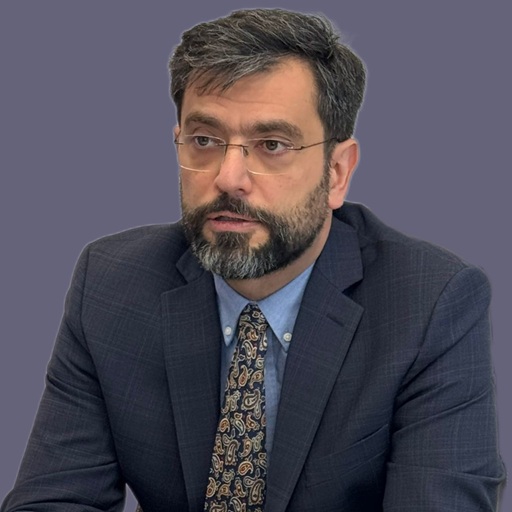Hooshang Lotfi
نوشته شده توسط Admin در 9 فوریه 25هوشنگ لطفی
هوشنگ لطفی عضو کانون مشاوران مهاجرت اداره مهاجرت کانادا بوده، و به عنوان فعال سیاسی و مدنی در شهر تورنتو هم اکنون مشغول به فعالیت می باشد. ایشان نقش مهمی در مساعدت به خانواده های قربانیان و فعالان جنبش زن ، زندگی، آزادی داشته و همواره درانتقال این بازماندگان به کشورهای امن نقش به سزائی داشته است. ایشان همچنین دانش آموخته و فارغ التحصیل رشته مدیریت بازرگانی از دانشگاه مانیتوبا کانادا و درحال حاضر عضو جامعه حسابرسان خبره کانادا نیز می باشد.
Hooshang Lotfi – Lawyer and Expert in Canadian Immigration and Refugee Law
Hooshang Lotfi is a member of the Immigration Consultants of Canada Regulatory Council and is currently active as a political and civil activist in Toronto. They have played a significant role in assisting the families of victims and activists of the “Woman, Life, Freedom” movement and have always been instrumental in relocating these survivors to safe countries. They are also a graduate of Business Administration from the University of Manitoba, Canada, and currently a member of the Chartered Professional Accountants of Canada.

ABSTRACT
عدم وجود اعتماد در بین افراد و گروههای مختلف جامعه، مانعی بزرگ برای شبکه سازی هوشمند در مقابله با جمهوری اسلامی است. دو امری که جمهوری اسلامی در طول سالیان گذشته سرمایه گذاری هنگفتی برای شکست آنها داشته است: اعتماد و شبکه سازی.
در طول 46 سال گذشته، جمهوری اسلامی با تمام قوا سعی در از بین بردن اعتماد مابین مخالفان خود کرده، و در نتیجه مانع هرگونه شبکه سازی بر علیه جمهوری اسلامی از طریق ترور، دستگیری، و ارعاب فعالان شده است.
در عین حال، ایرانیان امروزه کمتر از هر ملیت دیگری به ایرانی بودن خود افتخار میکنند. دلیل آن چیست؟ و این مساله چه تاثیری میتواند بر فردای ایران پس از آزادی داشته باشد؟ مشاهدات و بررسی های آماری نشان میدهد که ایرانیان بر خلاف ملیت های دیگر بعد از مهاجرت تمایلی به اظهار ایرانی بودن خود در مجامع ندارند و بیشتر تمرکز بر روی ملیت ثانوی (به دست آمده) خود دارند.
در حالی که بیش از 5 میلیون ایرانی تخمین زده میشود که در خارج از ایران زندگی می کنند، این گروه از ایرانیان میتوانند نقش بسیار موثری در بازسازی ایران فردا داشته باشند. این بازسازی الزاما بازسازی یا احیای منابع، ساختمانها و حتی محیط زیست نیست. بلکه شامل بازسازی روحیه جمعی مبتنی بر جامعه ای متکثر هم هست. افرادی که به دلائل گوناگون در جوامع توسعه یافته زیسته اند میتوانند نقش موثری در گسترش گفتمانی برابر و تکثر گرا با حفظ هویتهای فردی افراد بازی کنند.
در نهایت تمام این قوا، امکانات، تجربه ها، و دانش می توانند به ساختن ایران فردا کمک شایانی کنند. باید در نظر داشت که ساختن متوازن، هماهنگ، و متناسب جامعه ایران فردا بدون وجود مفاهیمی نظیر عدالت انتقالی درکنار دادخواهی میسر نخواهد بود.
عدالت انتقالی و حاکمیت خرد جمعی و قانون مهمترین پشتیبان و سنگ بنای ورود به ایرانی دموکراتیک و آزاد است. در فردای آزادی نیروهای انسانی، در کنار حاکمیت قانون و خرد جمعی، نقش بسیار مهمی در تساوی گروهها و طبقات مختلف اجتماعی خواهند داشت.
Question of Trust: Transitional Justice
The lack of trust among different individuals and groups in society is a major obstacle to intelligent networking against the Islamic Republic. Two things that the Islamic Republic has heavily invested in over the years to defeat: trust and networking.
Over the past 46 years, the Islamic Republic has made every effort to destroy trust among its opponents, thereby preventing any form of networking against the Islamic Republic through assassination, arrest, and intimidation of activists.
Meanwhile, Iranians today are less proud of their Iranian identity than any other nationality. What is the reason for this? And what impact can this have on the future of Iran after freedom? Observations and statistical studies show that unlike other nationalities, Iranians are reluctant to express their Iranian identity in public after immigration and focus more on their secondary (acquired) nationality.
While it is estimated that more than 5 million Iranians live outside of Iran, this group of Iranians can play a very effective role in rebuilding the future of Iran. This reconstruction is not necessarily about rebuilding or restoring resources, buildings, and even the environment. It also includes rebuilding a collective spirit based on a diverse society. Individuals who have lived in developed societies for various reasons can play an effective role in spreading an equal and pluralistic discourse while preserving individual identities.
Ultimately, all these forces, facilities, experiences, and knowledge can greatly contribute to building the future of Iran. It should be noted that balanced, coordinated, and proportionate construction of the future Iranian society will not be possible without concepts such as transitional justice alongside seeking justice. Transitional justice and the rule of collective wisdom and law are the most important supporters and cornerstones of entering a democratic and free Iran. In the future of freedom, human resources, alongside the rule of law and collective wisdom, will play a very important role in the equality of different social groups and classes